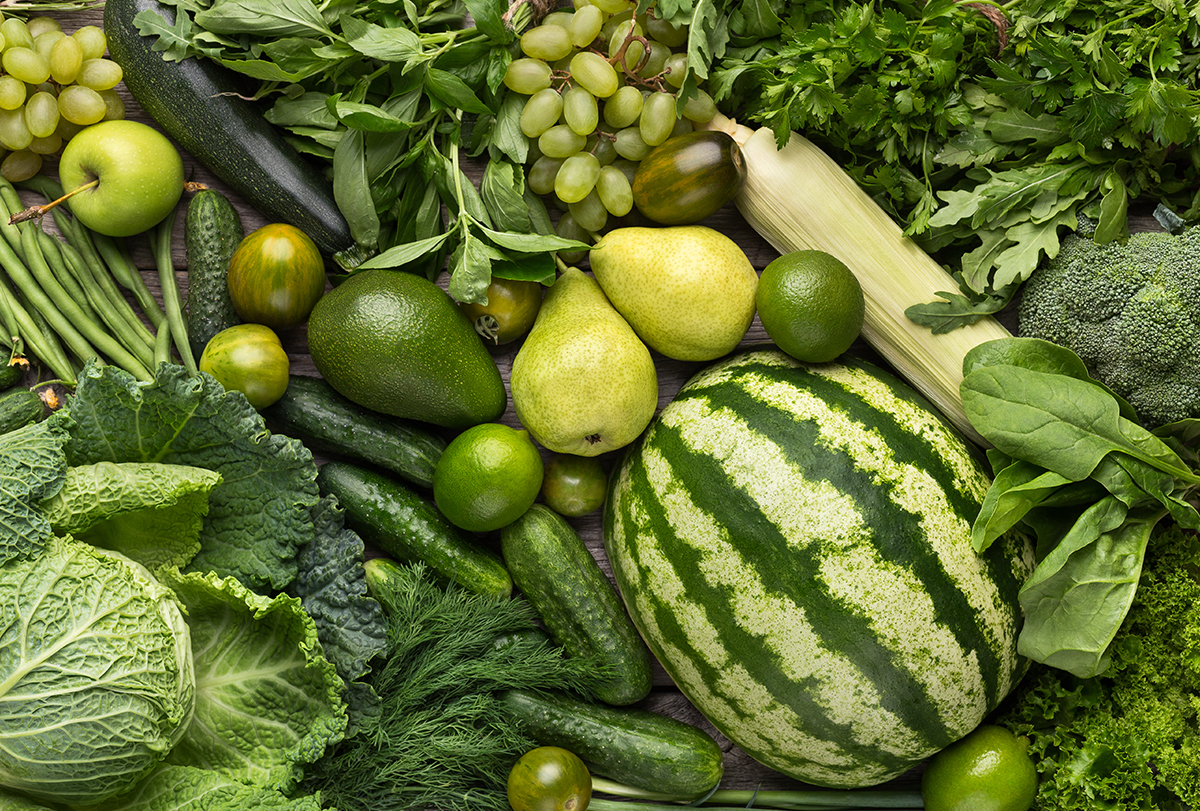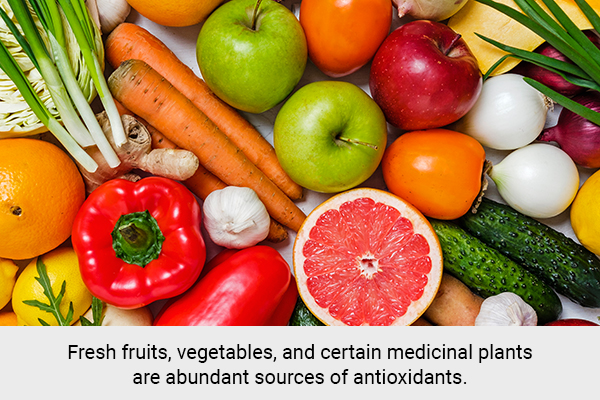In this article:
Phytonutrients or phytochemicals are chemical substances found in foods, especially fruits and vegetables. They exist alongside nutrients such as vitamins and minerals.

These phytochemicals perform different functions in the body including reducing inflammation, improving insulin sensitivity, and alleviating stress. (1)
Phytonutrients and antioxidants are not the same thing, but some phytonutrients act as antioxidants and aid in protecting the body from damage caused by free radicals.
It is also pertinent to remember that not all antioxidants are phytochemicals. Vitamins such as vitamins C and E and minerals such as selenium and zinc also act as antioxidants in the body. (2)
Antioxidants – Their Role in the Body
One of the main roles of antioxidants is to help neutralize free radicals generated in the body. Free radicals are a product of the normal functions occurring in the cells, environmental stresses, and the food you eat.
These free radicals cannot exist freely and need to attach themselves to other healthy cells (including proteins and DNA) to become stable. This process leads to the formation of toxic compounds that damage healthy cells. (3)
If left unaddressed, these free radicals can cause illnesses including diabetes, hypertension, arthritis, speeding up of the aging process, cancer, Alzheimer’s disease, Parkinson’s disease, liver damage, and asthma. (3)
Antioxidants aid in protecting the body by providing a partner to these free radicals. In this way, the body’s healthy cells are spared and the risk of disease is reduced. (4)(3)
Some phytochemicals that act as antioxidants include catechin, cyanidin 3-glucoside, epicatechin, gallic acid, kaempferol, β-carotene, quercetin, myricetin, anthocyanins and ellagitannins, and lycopene. (5)
Sources of Antioxidants

Fresh fruits, vegetables, and certain medicinal plants are abundant sources of antioxidants.
Studies have identified foods such as berries, grapes, Chinese dates, guava, pomegranates, persimmons, ginseng, broccoli, spinach, carrots, and strawberries to have high antioxidant capacity. (3)
How Much Antioxidant-Rich Food Do I Need to Consume Daily?
Consuming a diet rich in fruits and vegetables (at least 5 servings each day) should give you enough antioxidants to aid the body.
In specific disease conditions, your physician will identify your requirements and intake levels.
Practical Takeaway
- Phytonutrients or phytochemicals are chemical substances that are present in fruits, vegetables, whole grains, nuts, and seeds. These perform different functions in the body and generally have a protective effect.
- Some of these phytonutrients also function as antioxidants, which help in neutralizing the effect of free radicals and preventing the formation of toxic and damaged cells.
- Not all antioxidants are phytonutrients; vitamins C and E, zinc, selenium, and other vitamins and minerals also act as antioxidants.
- Brightly colored fruits and vegetables such as berries, oranges, grapes, carrots, ginseng, spinach, and broccoli all contain plenty of antioxidants.
- Was this article helpful?
- YES, THANKS!NOT REALLY


